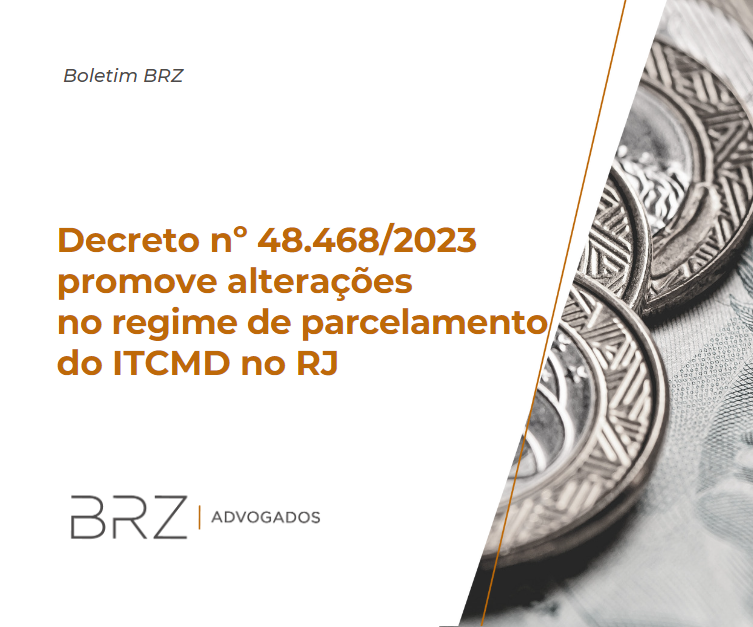New Legal Framework of the Foreign Exchange Market

Our lawyers Gustavo Centeno Biglia, specialist in Corporate Law and Mergers and Acquisitions, and Camila Mazzer de Aquino, Tax Law specialist, wrote an article about the “Legal Framework of the Foreign Exchange Market”, a law aimed at updating foreign exchange legislation and creating an opportunity for Brazilian banks and financial institutions to invest funds abroad, as well as other optimizations for the market. To learn more, access the full article.
By the end of 2021, the president sanctioned, without any vetoes to its text, Law No. 14,286/2021, also known as the new “Legal Framework for the Foreign Exchange Market” consolidating and repealing several old rules dating back to 1920.
The purpose of this new law is to update the foreign exchange legislation and create an opportunity for Brazilian banks and financial institutions to invest funds abroad and also to make the use of the Real and foreign currencies more flexible in transactions in the domestic and foreign markets. In addition, this law is deemed as a major advance for the debureaucratization of the foreign exchange market, as it aims to streamline business with the international market, taking a big step to make Brazil a player once and for all in the international foreign exchange and capital markets.
In this new law, the National Monetary Council will be free, together with the Central Bank – which, in turn, had already been freed in the past -, to carry out the regulation of the foreign exchange market.
With the advent of the new law, the use of foreign currency was allowed, for example, for negotiations within the domestic market, such as leasing agreements and securities related to foreign trade, in respect to their funding or respective collateral.
The law changed the maximum amount of cash money in foreign currency that each traveler can enter and leave Brazil with from the current BRL 10,000.00 to USD 10,000.00. Negotiations between natural persons were also authorized, waiving any formality and specific regulation if these are carried out in a non-professional manner and provided that they do not exceed the amount of USD 500.00. This type of authorization, which is standard in other countries, demonstrates Brazil’s clear interest in standardizing exchange procedures following the international market.
Another relevant change is the permission to open accounts in foreign currency. Although this change is still pending specific regulation by the Central Bank of Brazil, the legislator’s intention is that individuals can keep in their accounts not only resources in Real, but also Dollars, Euro and other foreign currencies, thus facilitating the occasional negotiations highlighted above.
Individuals and legal entities were also allowed to maintain foreign currency resources given as consideration for Brazilian exportation of goods and services, without the current restrictions, such as the limitation of values and forms of use.
In addition, the registration obligations with the Superintendence of Currency and Credit (“SUMOC”) and the Income Tax division were revoked so that legal entities may now remit funds to foreign markets (dividends, profits, interest, royalties etc.). It is worth mentioning, however, that the obligation to demonstrate the payment of taxes levied in these operations was maintained.
The law also regulated the authorization recently granted by the Central Bank for fintechs to operate in the primary foreign exchange market. Before this law as passed, authorization was granted only to financial institutions authorized by the Central Bank to operate in the exchange market.
Although there are several positive changes, a few difficulties linger that could have been appropriately addressed by this Law, such as the generic prohibition of compensation of international credits. In any case, this and other issues can be remedied when the Central Bank brings forth its regulation on the matter.
The Legal Framework of the Foreign Exchange Market shall only be in effect at the beginning of 2023. During 2022, the Central Bank and the National Monetary Council are expected to work hard on the regulations that will be necessary, with public consultations open on some more relevant and controversial points.
By Gustavo D. Centeno Biglia and Camila Mazzer de Aquino



